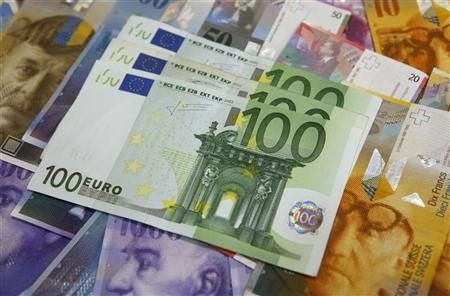Yen Forecast: Xie Sees 40% Drop, Japan Bubble Bursting

Andy Xie, a prominent independent economist based in Shanghai, has a gloomy forecast for the Japanese yen.
In the “not distant” future, the currency could depreciate by 30 percent to 40 percent in a matter of days, after Japan's financial bubble pops, he says.
“A financial bubble doesn't burst slowly. When it occurs, it just pops,” writes Xie, formerly Morgan Stanley’s chief economist for Asia and the Pacific.
He believes the catalyst will be weakness in Japanese exports. The country's auto industry is losing out to Germany, South Korea and the United States, with the latter two also eclipsing Japan's electronics sector.
This loss of global competitiveness -- coupled with the threat of ever-climbing oil prices -- means trade deficits, which could render Japan's private sector unable to lend to the government at current levels and rates.
Japan has the world's highest ratio of public debt to gross domestic product. Yields on its government bonds, however, have been low because its citizens and businesses are all too willing to lend, partly from the proceeds of export earnings.
This behavior is explained by the country’s deflation and savings mind-set, which encourages business and citizens to park money in yen-denominated government bonds. It also explains the currency's unusual strength.
The Japanese government, in return, compensates for the lack of private-sector consumption and investment through massive deficit spending.
If Japan's private sector no longer has the money to lend to the government, leaving it at the mercy of foreign creditors, the system breaks and one of two things will happen, Xie says: Either Japanese bond yields soar, rendering the government insolvent, or the yen undergoes a massive depreciation and yields stay low as yen-dominated assets become cheaper to foreigners and foreign assets become more expensive to the Japanese -- a scenario the Chinese economist thinks is more likely.
A small depreciation wouldn't suffice because Japan’s debt is so large that if 10-year yields were to rise from 1 percent, their current level, to just 2 percent, interest expenses would exceed the government’s expected tax revenue for fiscal 2012.
Xie isn't alone in his doubts about Japan.
Kyle Bass, a Dallas-based hedge fund manager who manages more than $700 million in assets, pointed to another phenomenon that could destroy Japan’s delicate system: its aging population. A graying citizenry means more people will spend money than accumulate savings. In Japan that means selling, rather than buying, government bonds.
Richard Howard, a strategist for Bass’s fund firm, Hayman Capital Management, thinks crisis could hit Japan by mid-2013, the Wall Street Journal quoted him as saying in January.
Howard said he thought the yen could plunge to as much as 115 per U.S. dollar -- a depreciation of about 40 percent from current levels.
Xie's and Bass’s warnings are the latest predictions from the financial community that Japan’s gigantic, puzzling excesses, which have persisted for over two decades, are coming to an end. And therein lies a powerful argument against their bearish Japanese yen forecast.
For as long as Japan's economic path has seemed paradoxical -- gigantic public debt with low government-bond yields, a large export sector with a strong currency -- foreigners have predicted big drops in the yen and been proved wrong.
Those who actually tried to short the yen have gotten burned. This year, people such as Xie and Bass have put forth convincing “this time it’s different” arguments. But quotes from two Britons come to mind. “Markets can remain irrational longer than you can remain solvent,” economist John Maynard Keynes said, while fund pioneer Sir John Templeton offered, The four most dangerous words in investing are: 'This time it's different.'
Of course, Templeton's comment could be used in defense of those bearish on the yen: Over an elongated time frame, a ballooning deficit almost always ends in crisis.
© Copyright IBTimes 2024. All rights reserved.





















